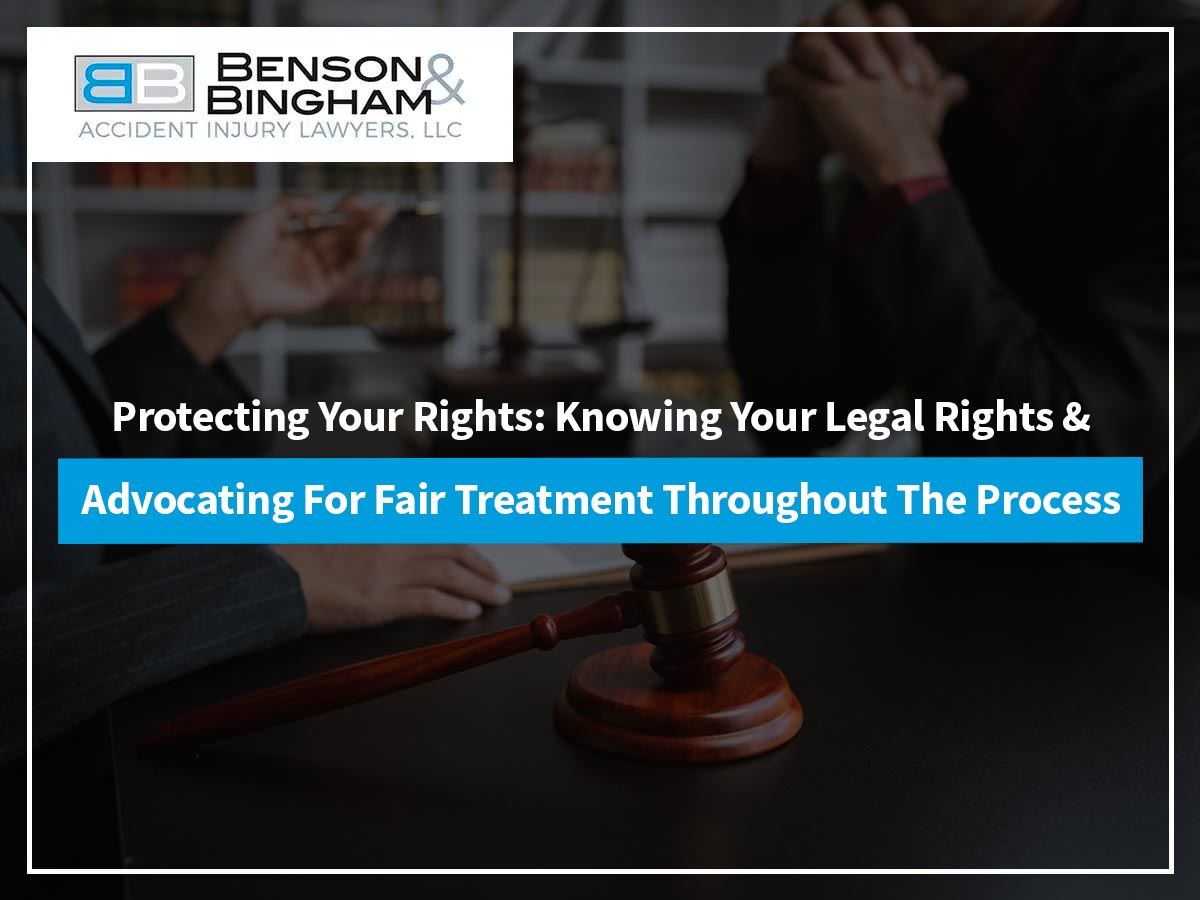
However, as you do so, it is important that you understand your legal rights and options. Personal injury law can be complex and if you’re not careful to understand these things, you could end up with lower compensation or even none at all. This is where a Las Vegas personal injury lawyer can be helpful.
Personal Injury Law & How To Know If An Injury Is Eligible For a Claim
Personal injury law is a helpful branch of law that helps those who have been hurt get compensation. The cases can involve injuries through negligence, recklessness, or intention. The main purpose of the law is to help the injured party recover as much as possible. The insurance company or a court will look at all of the ways the injured party was impacted and determine an amount that should be awarded. They will look at:
- Medical expenses
- Lost wages
- Pain and suffering
- Emotional distress
- Punitive damages
Not just any accidental injury is subject to a personal injury claim. There must be a few things present, such as a duty of care. The duty of care establishes that it was reasonably expected that the person or business had a duty to create a safe environment for the individual.
For instance, it is expected that a hotel will put up a “wet floor” sign when mopping the floors as they are responsible to keep their patrons safe during their stay. In addition to a duty of care, it must be proven that the duty of care was breached due to negligence or misconduct. A skilled Las Vegas personal injury lawyer can help you determine if your injury has the right things in place to create a case.
Understanding How Statute Of Limitations May Affect a Personal Injury Case
The statute of limitations is a time limit set starting from when the incident occurred. Different circumstances have different statutes of limitations and each state determines how long the time limit is for each circumstance. These time limits are set because as time goes on and memory fades, it can be more difficult to accurately address the cases.
In Nevada, the statute of limitations for personal injuries is generally two years. However, there are some exceptions to this. If the injury wasn’t immediately obvious, the statute of limitations begins on the date the injury was discovered. Additionally, if the injured person was a minor, the statute of limitations is paused until they reach 18 years old.
How To Protect Your Rights While Building a Strong Case
If you are pursuing a personal injury case, it is wise to consult with a Las Vegas personal injury lawyer. Their job is to protect your rights every step of the way and ensure you are aware of all of your options. One of the first steps they will take is building a strong case. They will do this by completing the following steps:
- Assessing the merits of your case
- Determining liability for your injury
- Collecting evidence
- Consulting experts
- Calculating all damages
- Negotiating with insurance companies
- Preparing for trial, if necessary
- Represent you in trial
Negotiating The Settlement
Many personal injury cases are settled before going to trial. This is a more ideal situation as it can give you compensation quicker without having to go through a costly and lengthy process. However, for the best results, negotiating a settlement requires training and knowledge of personal injury law and experience in calculating damages suffered.
Most insurance companies will contact you, offering a settlement right away. It is important not to take this settlement without consulting with your lawyer. The insurance company will likely pressure you, but you have the right to refuse the first settlement. Contact your Las Vegas personal injury lawyer who can negotiate for the compensation you deserve.
What To Expect When Taking Your Personal Injury Case To Trial
There are times when negotiation does not handle your case as needed. In these circumstances, you will likely take the case to trial. During the trial, you and your lawyer will be required to present evidence, and witnesses will be questioned.
Going to trial may be intimidating, but following your attorney’s advice on going to trial will help you get the compensation you deserve. Your lawyer will lead you through every step of the process and ensure your rights are protected.
Ensuring Your Contingency Fee Is Arranged With a Lawyer

Hiring a lawyer on a contingency basis can ensure you get the legal help you need during your difficult time. Make sure you discuss the percentage your lawyer will take after they win your case so you are aware of everything possible going into hiding them.
Protect Your Rights by Hiring Our Las Vegas Personal Injury Lawyers
When you’re suffering from a personal injury, reach out to our Las Vegas personal injury lawyers at Benson & Bingham right away. With years of experience, a track record of success, and a commitment to our clients, you can have peace of mind knowing that our lawyers will fight to win your case and protect your rights every step of the way.
Don’t wait to contact us and discover how we can support you through your personal injury journey.
Read About Our Other Secret Top Tips To Maximize Your Compensation
1. Understanding the Insurance Process: Navigating insurance claims and negotiations effectively.
2. Gathering Crucial Evidence: Tips for collecting and preserving evidence to strengthen your case.
3. Documenting Your Injuries: Importance of thorough medical documentation for maximizing compensation.
4. Negotiating with Insurance Adjusters: Techniques for achieving a favorable settlement offer.
5. Understanding Settlement Offers: Evaluating offers and knowing when to accept or negotiate further.
6. Considering Future Damages: Anticipating long-term medical expenses and future losses.
7. Avoiding Common Mistakes: Pitfalls to avoid that could jeopardize your settlement.
8. Calculating Your Damages: Including medical bills, lost wages, and non-economic damages.
9. Proving Liability: Strategies for establishing fault and holding the responsible party accountable.
10. Dealing with Medical Providers: Managing medical bills and liens during the settlement process.
11. Utilizing Expert Testimony: Leveraging expert witnesses to support your claim.
12. Reviewing Legal Fees & Costs: Understanding The Financial Aspects Of Hiring a Lawyer & Pursuing a Claim.
13. Navigating Legal Deadlines: Understanding Statutes Of Limitations & Other Time Constraints
14. Handling Subrogation Claims: Dealing with reimbursement claims from insurance providers.
15. Staying Informed and Empowered: Keeping up-to-date with the progress of your case and asking questions.
16. Protecting Your Rights: Knowing your legal rights and advocating for fair treatment throughout the process.
17. Maintaining Confidentiality in Settlement Negotiations and Mediations



